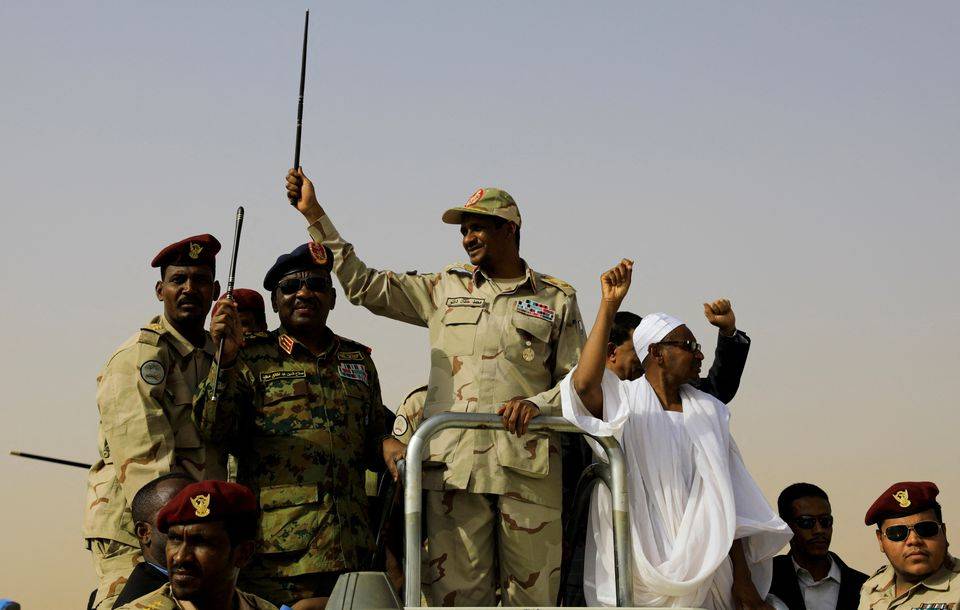1145 Views
Abu Dhabi’s Hidden Empire: Inside the Gold-Fueled War Economy of Sudan
Dubai has quietly become the central hub for Sudan’s conflict gold — untaxed, untraceable, and deeply embedded in the country’s ongoing civil war. This gold finances the Rapid Support Forces (RSF), undermines the economic independence of Sudan’s civilian leadership, and reinforces a regional power structure in which the United Arab Emirates is far more than a passive observer.
The UAE’s role in Sudan is not peripheral; it is part of a broader, well-financed, and deeply coherent regional strategy that can only be described as *sub-imperialist*. It is not an empire in the global sense, but it acts imperially within its region — aligning itself with the interests of major Western powers while pursuing its own assertive agenda across Africa and the Middle East.
This project blends economic extraction, alliances with authoritarian regimes, and counter-revolutionary policy — all disguised under the rhetoric of “diplomacy and modernization.” Sudan has tragically become one of its main laboratories.
In 2015, the Bashir regime sent RSF fighters to Yemen under Emirati command. It was a transactional relationship: the UAE used Sudanese mercenaries for its war, and in return, provided RSF leader Mohamed Hamdan Dagalo (Hemetti) with weapons, logistical support, and political legitimacy. Over time, the RSF evolved into the UAE’s most effective proxy in Sudan — a force that can both crush dissent and control the nation’s gold fields.
Between 2013 and 2023, the RSF seized control of Sudan’s gold mines, particularly in Darfur, and most of that gold was smuggled directly to the Emirates. Today, the RSF taxes miners, flies unmarked shipments of gold to Dubai, and receives in exchange cash, fuel, spare parts for military vehicles, and occasionally arms.
This is not an alliance built on ideology or humanitarian aid — it is a *supply contract*: the RSF delivers gold, the UAE refines it, and the finished bullion — stamped, numbered, and laundered through global finance — disappears into the international market. The war itself helps sustain this cycle by keeping global gold prices high, directly benefiting Dubai’s gold industry.
For the UAE, gold is more than liquidity. It is a tool to transform high-risk, politically tainted assets into legitimate wealth embedded in the global financial system. As long as the cost of supporting the RSF remains manageable, the war in Sudan remains economically profitable for Dubai — preserving its dominance in the global gold trade.
Abu Dhabi’s approach is defined by *control of flows, not control of land*. By funding and supplying the RSF, managing Port Sudan through DP World, and securing pre-reconstruction contracts, the UAE focuses on future logistics and capital cycles, not battlefield victories.
The real indicator of change will not come from the frontlines, but from the credit risk of Jebel Ali’s refineries. Should international scrutiny on money laundering and human rights intensify, the UAE would quietly shift its supply routes — and within 60 to 90 days, the RSF could collapse.
At the infrastructural level, Abu Dhabi holds decisive leverage. Sudan’s regular army (SAF) depends on Port Sudan — a port effectively run by DP World — for both military and economic survival. Whoever wins the war, one fact remains: they will still have to pay the Emiratis. The UAE has already positioned itself for victory, regardless of who prevails on the ground.
After the war, Sudan will need to rebuild airports, bridges, and Khartoum’s power grid. Emirati firms are already drafting pre-contracts for reconstruction — in exchange for port concessions, mining rights, and long-term operation deals. This layer reveals the UAE’s strategic foresight: to secure a future economic foothold before the peace even begins.
In the end, the UAE is not a neutral peace broker in Sudan — it is an active belligerent hiding behind diplomatic ambiguity. Through its proxy force (the RSF), its control of gold flows, and its ability to sanitize illicit wealth, Abu Dhabi has built a sub-imperial model of regional domination: one in which money, proxy wars, and opaque economic networks allow a small but wealthy state to control a poor, strategic country — all while maintaining global political immunity.
1. https://spectrejournal.com/uaes-subimperialism-in-sudan/?utm_source=chatgpt.com
2. https://t.me/ravandnews
3. https://spectrejournal.com/uaes-subimperialism-in-sudan/?utm_source=chatgpt.com

Comment
Post a comment for this article